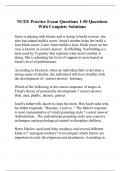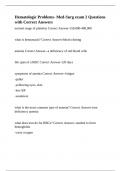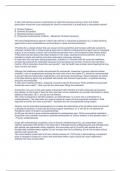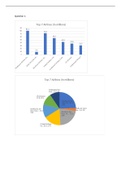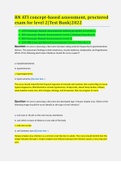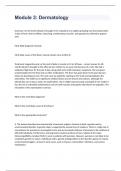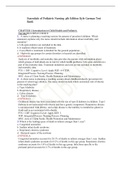printing company MullerVisual
A thesis submitted in fulfillment of the requirements
for the Bachelor of Business Administration for the studies
of International Business and Languages at the
Amsterdam University of Applied Sciences
Author: Lisa Reiken
Student Number: 500702696
Supervisor: Maurits van den Wall Bake
Academic year 2018/2019
Copyright ã 2018-2019 Lisa Reiken. All Rights Reserved. 1
,Waste processing cost reduction strategy for
printing company MullerVisual
A thesis written by Lisa Reiken (Student No: 500702696)
Amsterdam University of Applied Sciences
International Business and Languages
Supervisor: Mr. M. van den Wall Bake
Academic year 2018/2019
2
Copyright ã 2018-2019 Lisa Reiken. All Rights Reserved.
, Executive summary
This dissertation has been written for the bachelor studies of International Business and Languages
at the Amsterdam University of Applied Sciences. The research has been conducted for MullerVisual
Communication, an Amsterdam-rooted mid-sized printing business. In this thesis the focus lies on the
company’s waste processing, which is currently being outsourced to the company Van Scherpenzeel
and for which a cost reduction strategy needs to be developed. This strategy leads to the future
desired situation in which MullerVisual gets the best price for the recyclable waste and obtains the
cheapest options regarding container rental, transportation, and processing of the non-recyclable
waste. In order to achieve this, it needs to be researched whether MullerVisual should outsource or
insource the waste processing, and whether it would be more beneficial to cooperate with waste
processing companies in Belgium and Germany or in the Netherlands. Hence, the main research
question of this thesis is as follows:
How can MullerVisual, by either insourcing or outsourcing, reduce the total waste processing costs by
15%, before the last quarter of 2019?
To be able to answer the main question, three sub questions have been formulated based on two
selected theoretical perspectives: the transaction cost economics theory by Oliver E. Williamson and
the insourcing and outsourcing cost analysis by Donavon J. Favre. To acquire the necessary data for
the sub questions, several waste processing companies in the Netherlands, Belgium and Germany
have been selected for this research: Van Scherpenzeel, Renewi, Suez, Vanheede, MCA Recycling,
Ivarem, ALBA Group, Wirtschaftsbetriebe Duisburg, and KrW. Primary qualitative and secondary
research have been conducted, which has led to the following outcomes:
First of all, with an average of 262 transactions a month between MullerVisual and Van
Scherpenzeel, the waste processing is a frequently occurring activity. Furthermore, it is not an
activity which requires a lot of specific equipment or knowledge: the only equipment MullerVisual
needs are several types of containers, while the only knowledge needed is on how to separate waste.
Moreover, the waste processing is not bound to a certain location: It could be executed at any place.
Therefore, based on the TCE theory, this means that MullerVisual should outsource the waste
processing.
Second of all, if MullerVisual would outsource the waste processing, the total direct costs will consist
out of freight costs and the price of the invoice which the waste processing company would send.
The invoice is made out of costs of container rental, administration fees, and processing non-
recyclable waste. The indirect costs will be regarding quality control, which would be executed by
Boris Kasteel. MullerVisual has a positive waste processing credit balance: the total number of
receivables of recyclable materials is higher than the total costs. Due to the high freight costs, it will
not be the most beneficial option to work with the waste processing companies in Belgium and
Germany. Thus, MullerVisual should cooperate with a waste processing company in the Netherlands.
Based on this cost analysis, it would be most profitable for MullerVisual to outsource the waste
processing to Suez. This would lead to a monthly waste processing profit of €15,810.63.
3
Copyright ã 2018-2019 Lisa Reiken. All Rights Reserved.


